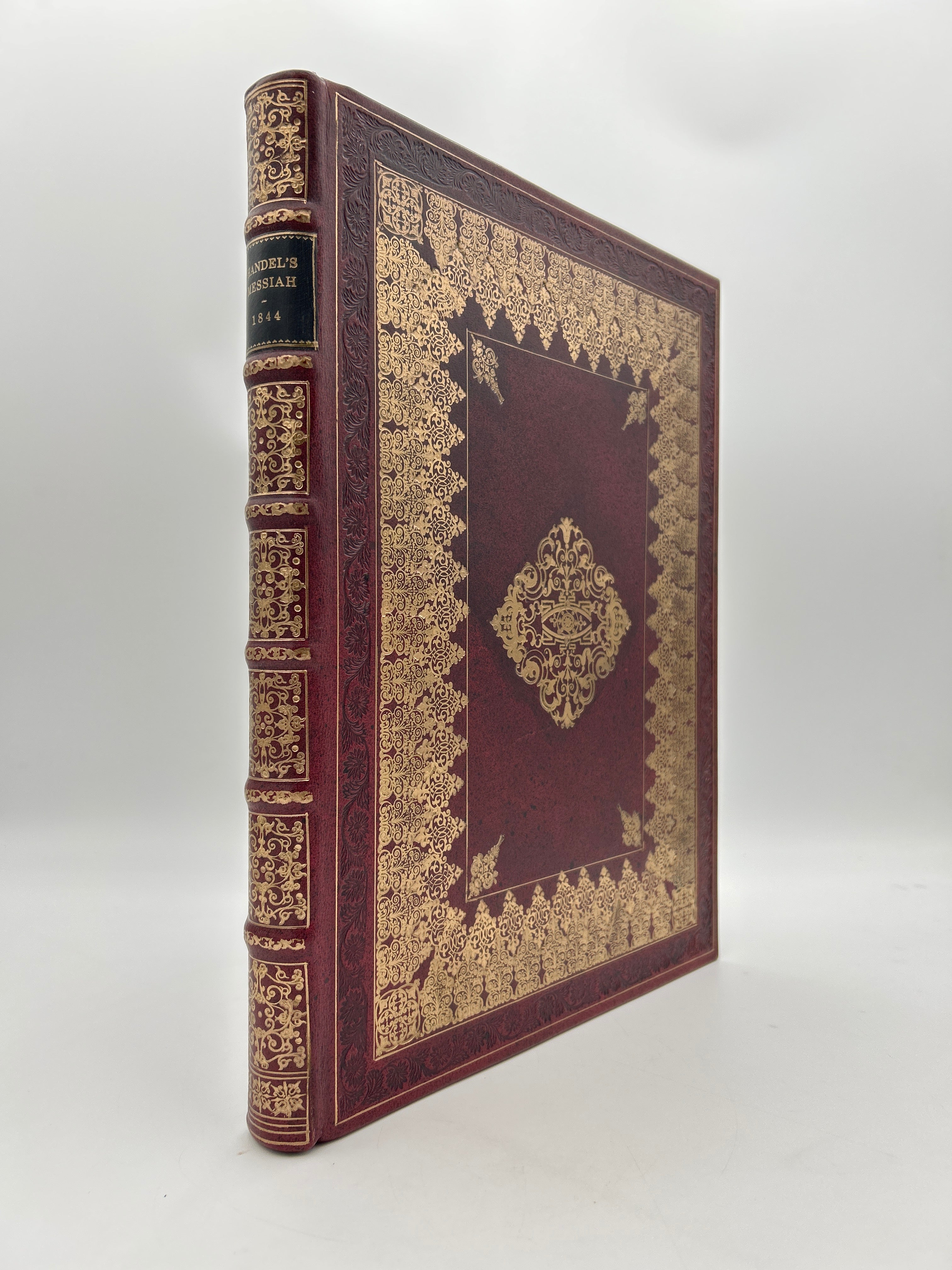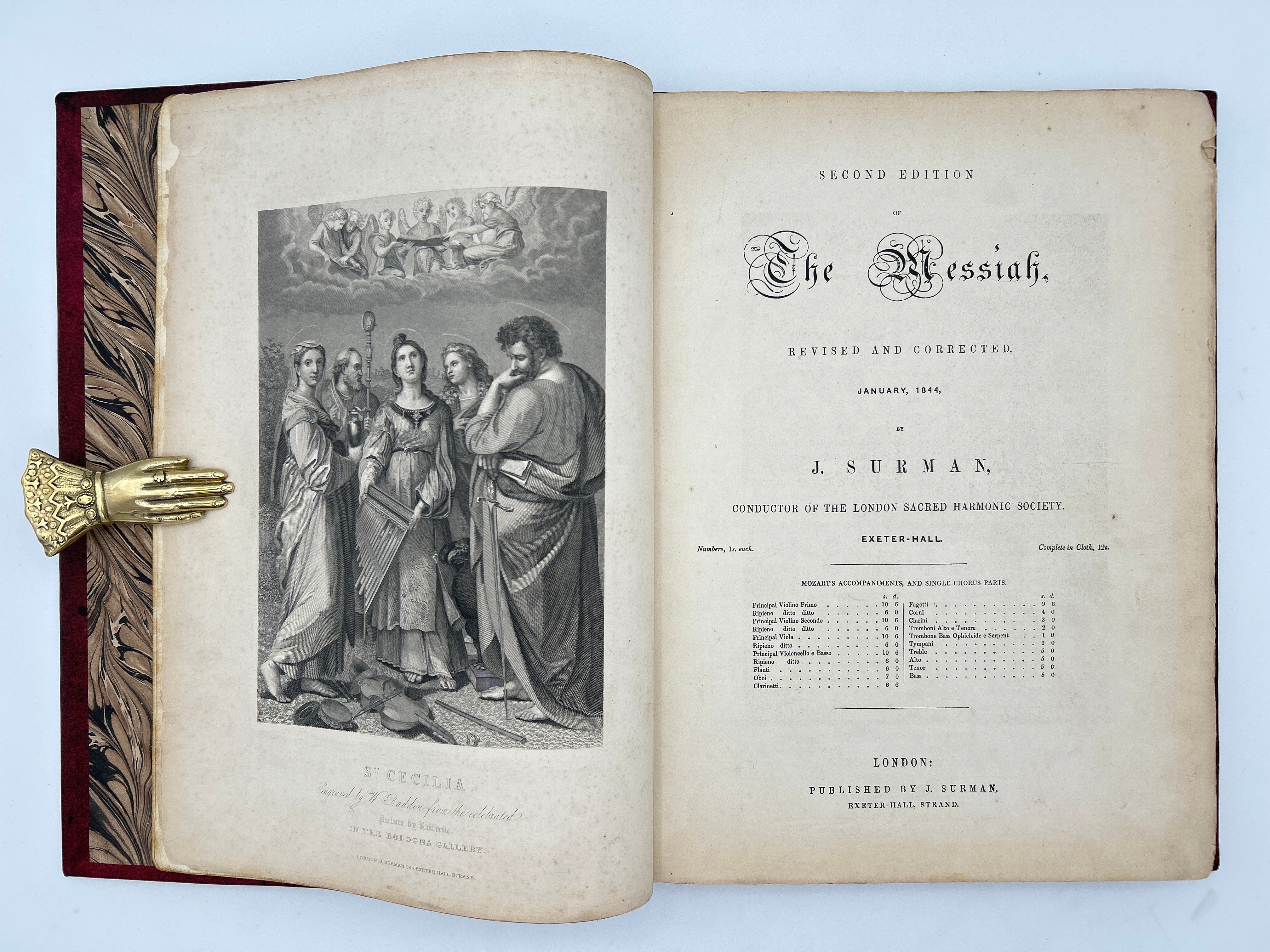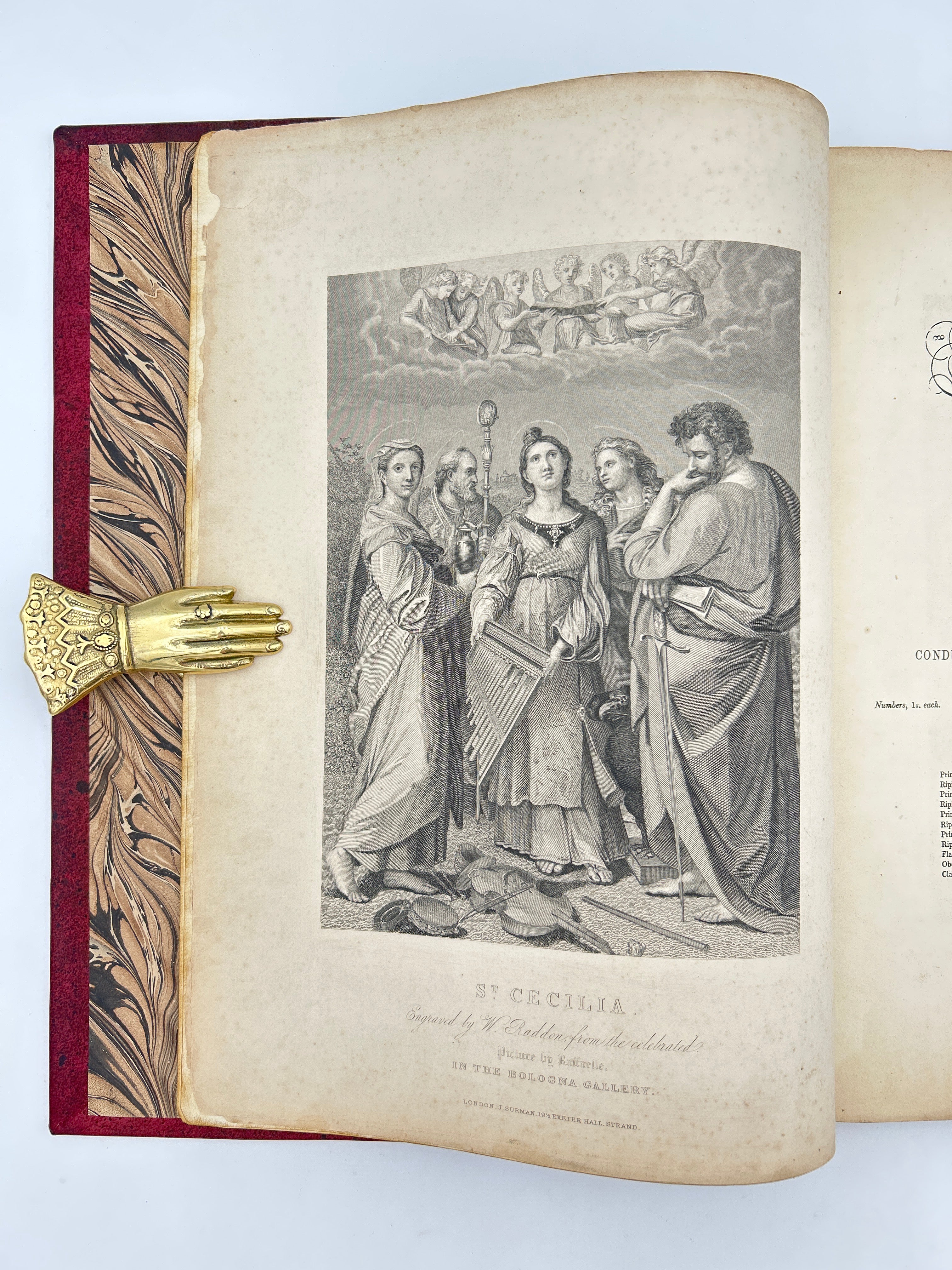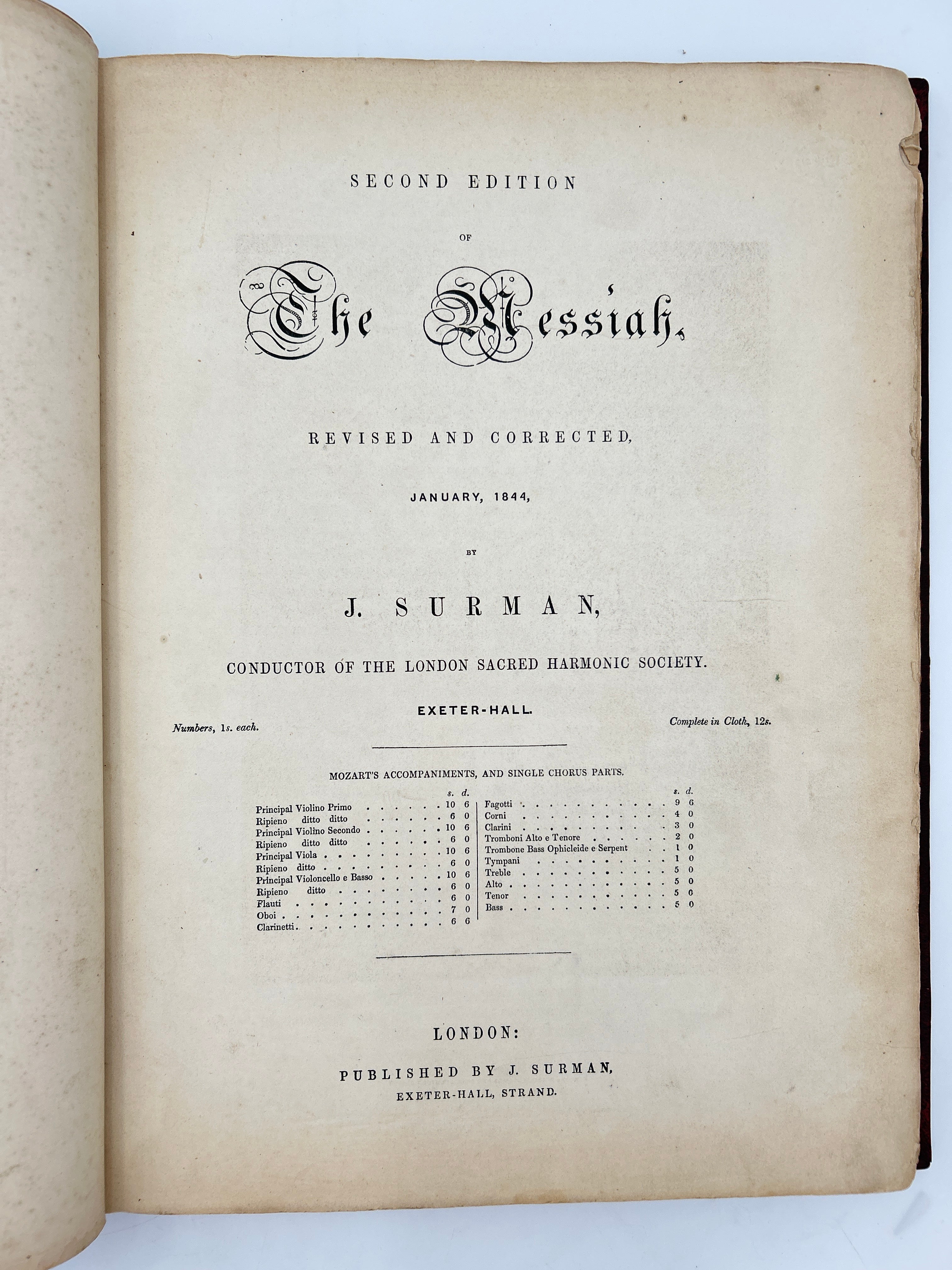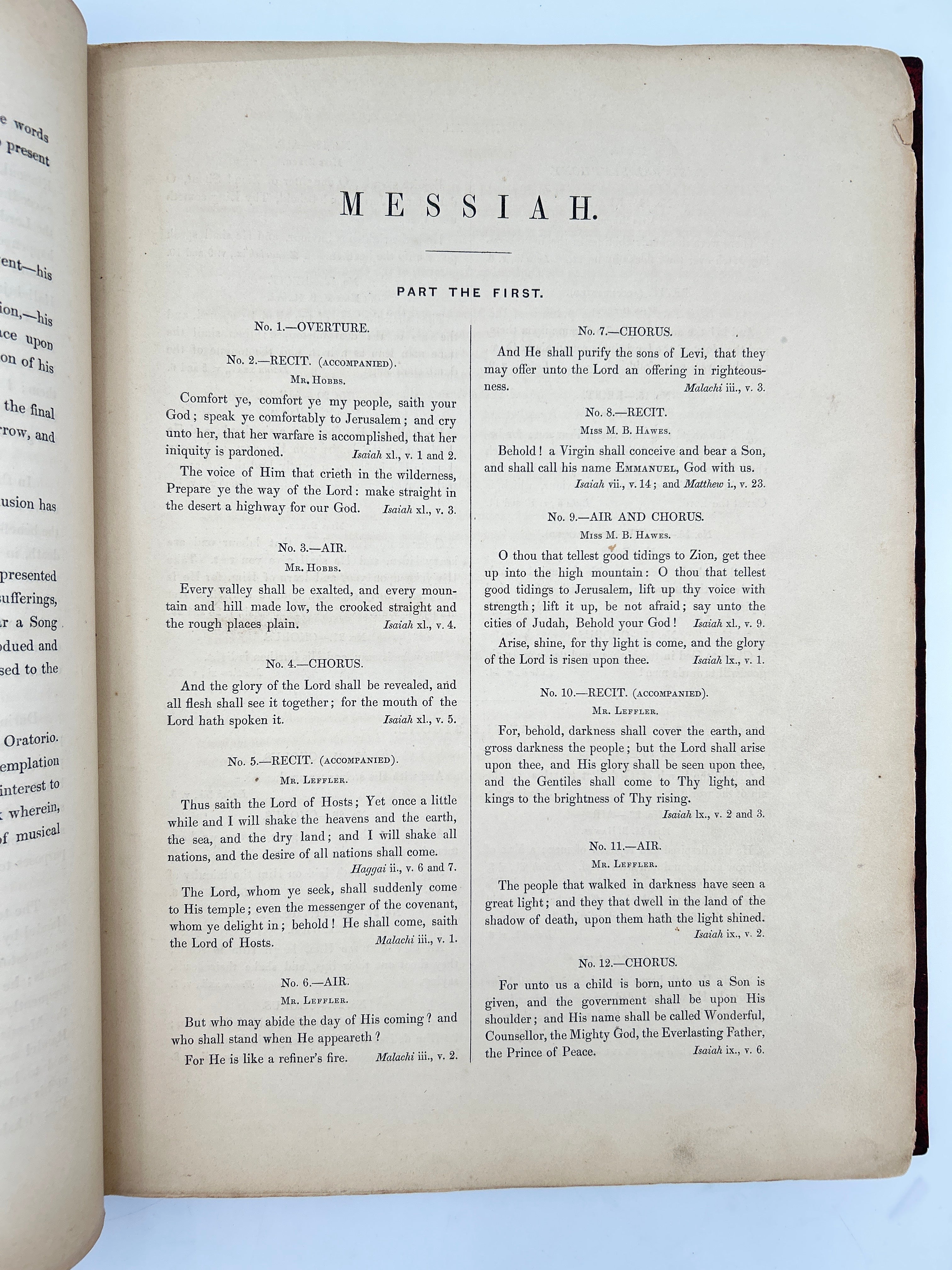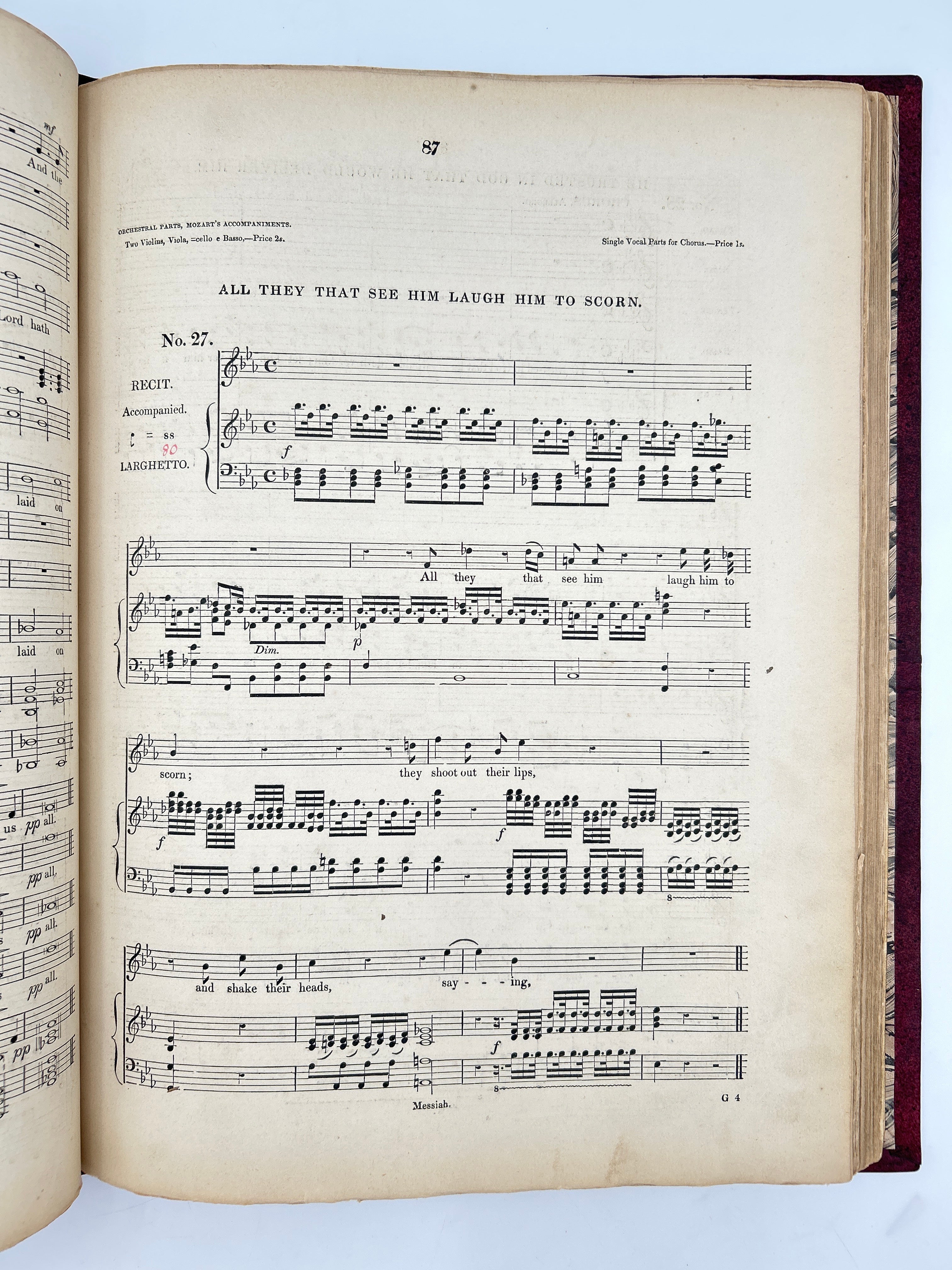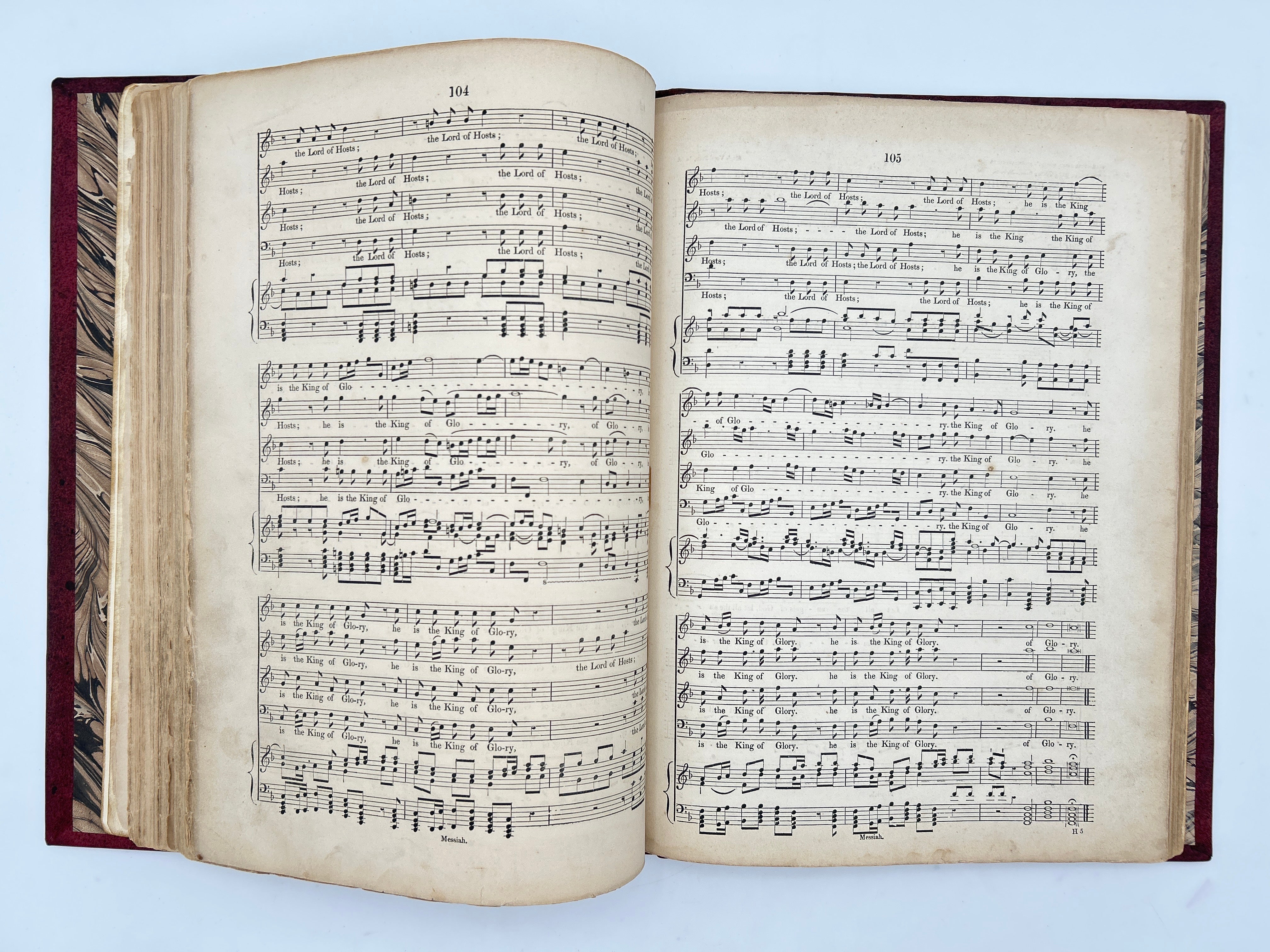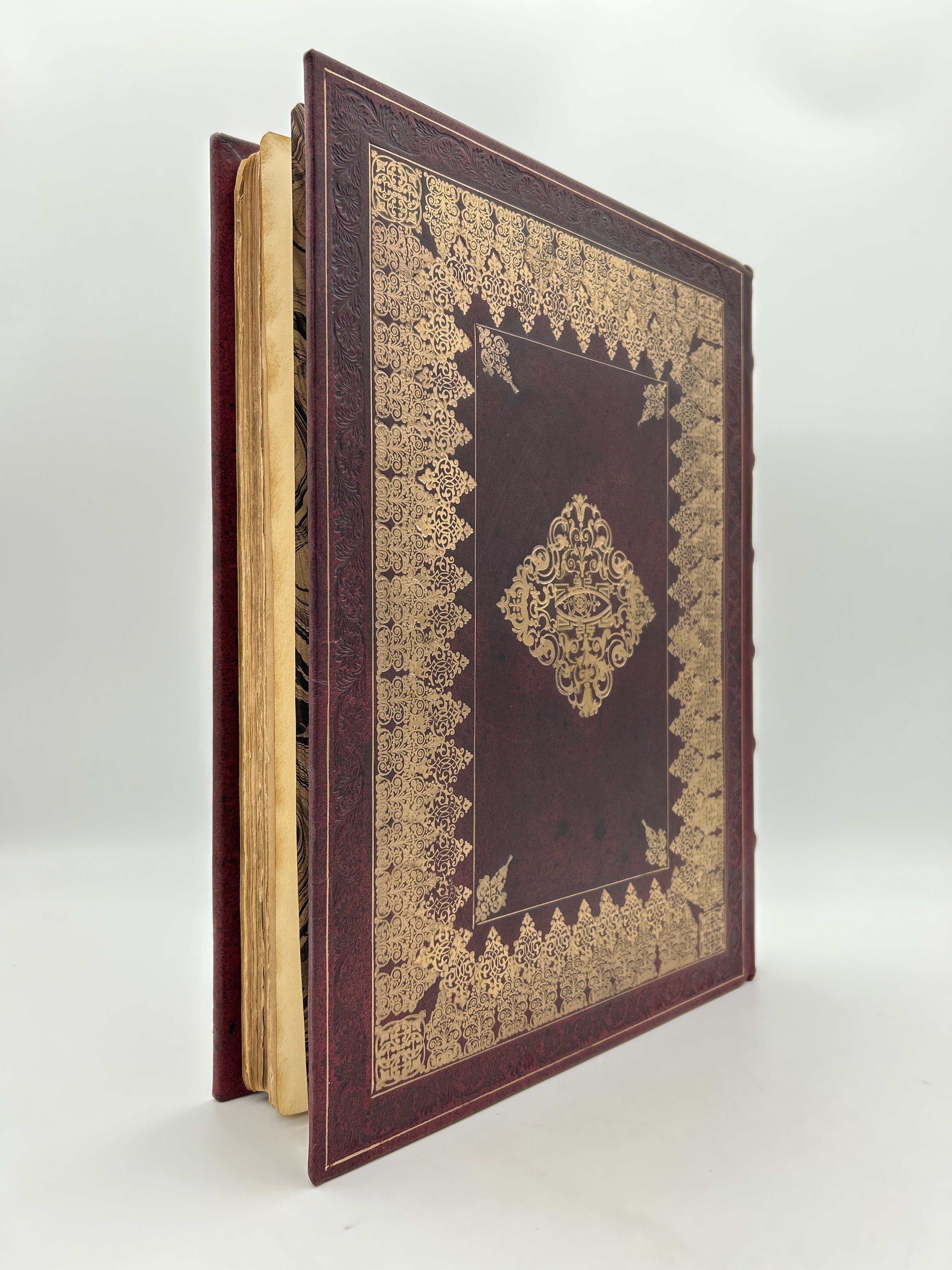Handel’s Messiah 1844
5R George Frideric Handel. Revised by J. Surman. London: Exeter-Hall, Strand, 1844. Second Edition. Modern Rebinding.
Notes
Handel’s Messiah is one of the most enduring and celebrated choral works in Western music, composed in just 24 days by George Frideric Handel in the summer of 1741. Unlike many of his earlier operas and oratorios that focused on dramatic stories or heroic figures, Messiah is a sacred oratorio based on the life of Jesus Christ, told through a sequence of biblical passages. The libretto (text) was compiled by Charles Jennens, a devout Anglican and patron of the arts, who selected excerpts from the King James Bible and the Book of Common Prayer. The structure is divided into three parts: the prophecy and birth of Christ, His suffering and resurrection, and His ultimate triumph and promise of eternal life.
The circumstances around the composition of Messiah are nearly as legendary as the music itself. At the time, Handel’s popularity in London was waning, and he had faced several financial setbacks. When Jennens presented him with the script, Handel was inspired—reportedly locking himself away for weeks, barely eating or sleeping. According to one famous (though possibly apocryphal) anecdote, he emerged from composing the "Hallelujah" chorus in tears, declaring, “I did think I did see all Heaven before me.” The entire oratorio, which runs over two hours, was completed between August 22 and September 14, 1741—a remarkably short time for such a complex and large-scale work.
Messiah premiered in Dublin in April 1742, rather than London, as part of a charity concert to raise funds for local hospitals and prisoners' aid. The reception was overwhelmingly positive, and the performance was so well-attended that women were asked to remove their hoops to allow more room in the venue. It wasn’t until later performances in London that Messiah became a cultural fixture, especially associated with Easter and Christmas, though it was originally intended for Lent. Over time, it grew into a tradition, with choirs around the world performing it regularly.
The most famous section, the "Hallelujah" chorus, traditionally prompts audiences to stand—a custom said to have begun when King George II supposedly rose to his feet during a performance, moved by the power of the music. Whether or not that story is true, Messiah has remained one of the most frequently performed works in the choral repertoire, beloved for its emotional depth, scriptural richness, and musical brilliance.
Description
Deep purple modern rebinding with elaborate gilt and embossed details on upper and lower boards. Six raised bands with gilt ornamentation and a black leather label in the second compartment. Marbled endpapers. Silver plate etching frontispiece. Fully intact. Minimal chipping along the edges of pages throughout. Very Fine condition.
